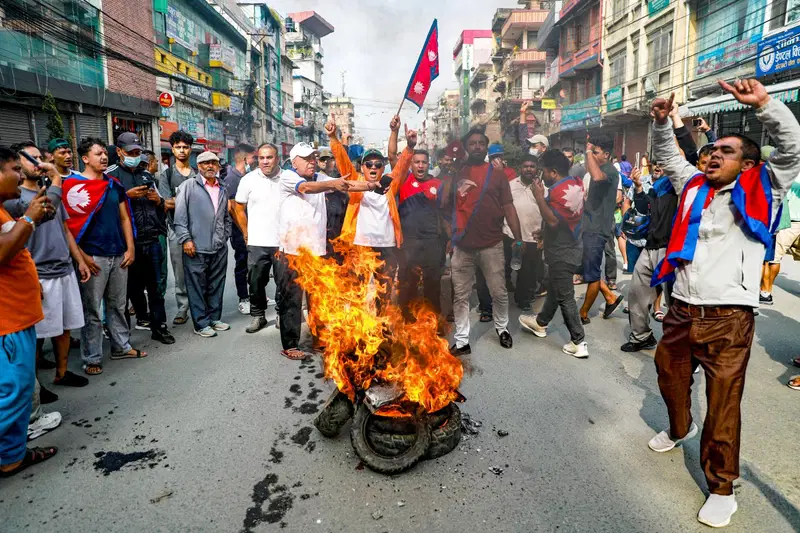Tough-talking Nepali politician who spent decades in communist politics and served as prime minister four times, Khadga Prasad Sharma Oli, stepped down on Tuesday following deadly youth-led protests sparked by a social media ban.
The 73-year-old tendered his resignation shortly after protesters set fire to his residence.
In his resignation letter, Oli expressed hope that his departure would contribute “towards a political solution and resolution of the problems.”
The unrest had already claimed at least 19 lives after police cracked down on demonstrators opposing the government’s ban on unregistered social media accounts.
Although access to the apps was restored on Monday, protests persisted, culminating in the torching of Nepal’s parliament building on Tuesday. Oli’s current whereabouts remain uncertain.
Oli, commonly known as “KP,” led the Communist Party of Nepal – Unified Marxist-Leninist and had formed a coalition government in 2024 with the center-left Nepali Congress.
He cultivated a cult-like persona as the party’s supreme leader, with life-sized posters and slogans proclaiming, “KP Ba (father), we love you,” prominent at his rallies.
Authoritarian Reputation
Political journalist Binu Subedi observed that Oli “transformed the party’s image as his own,” but also developed an authoritarian streak, treating his word as final and rarely tolerating criticism, even from within his own party.
Oli’s political journey spans nearly six decades, including a decade-long civil war and Nepal’s transition from absolute monarchy to republic in 2008.
His political activism began in his teens, and at 21, he was arrested in 1973 for campaigning against the king.
“I was sentenced to harsh imprisonment for 14 years, with four years of solitary confinement,” Oli recounted in a book of selected speeches.
During detention, he wrote poetry on cigarette boxes when paper was unavailable, reflecting on his fight against autocracy. “My crime was that I fought against the autocratic regime. But this never deterred me; it strengthened my resolve to continue the struggle,” he wrote.
After his release in 1987, Oli joined the CPN-UML, climbing party ranks and winning parliamentary elections.
He first became prime minister in 2015, was re-elected in 2018, and briefly reappointed in 2021 amid Nepal’s often turbulent political landscape.
He has acknowledged that “Marxism and Leninism cannot be a ready-made solution to every problem.”
Navigating Nepal’s delicate position between the giant neighbors India and China, Oli often balanced diplomacy, courting Beijing to reduce Nepal’s reliance on New Delhi while maintaining cordial ties with India.
He frequently invoked populist rhetoric portraying India as an overbearing “big brother,” using nationalist sentiment to bolster his popularity.
